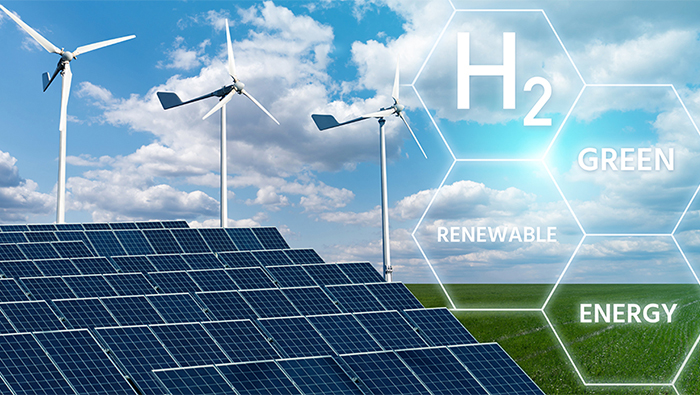
Muscat: Energy analysts have confirmed that green hydrogen will contribute significantly to mitigating the effects of global climate change and shifting towards a sustainable green economy, instead of fossil fuels that are used in heavy industries. This will open up great potential for industrial development, especially in countries that enjoy abundant sources of renewable energy.
Dr. Abdullah bin Suleiman Al Abri, advisor and representative of the Sultanate of Oman at the International Energy Agency, said: “The Sultanate of Oman aspires to develop a hydrogen economy. Therefore, an analytical study was conducted on the possibility of creating a local demand for hydrogen to support achieving zero neutrality in 2050 and revitalising local industries and economic competitiveness.”
The consultant and representative of the Sultanate of Oman at the International Energy Agency reviewed the detailed study to assess the possibility of replacing natural gas used to provide heat for industrial processes and current raw materials, while taking advantage of the existing industrial and export infrastructure in the Sultanate of Oman, indicating that the study included the technical and economic aspects of five industrial zones, which are Sohar, Muscat, Sur, Duqm and Salalah.
He explained that the study included technical evaluation, cost and expected revenues from sales of hydrogen, oxygen and natural gas, in addition to the financial payback period and the expected impact in terms of reducing emissions, the amount of natural gas saved and the land area required for solar energy fields.
Mariya bint Zaher Al-Tubi, an industrial energy analyst, explained that this study was conducted on the assumption that the life cycle of each project is 25 years, and that production begins in early 2027.
She added: “The study showed that the total expected demand for hydrogen is 8846 tons per day. The highest demand was recorded in Sohar with a rate of 45 percent, followed by Duqm with 28 percent, then Salalah with 14 percent, Sur with 9 percent, and the lowest in Muscat with 4 percent.
Al-Taubi indicated that the expected demand for hydrogen comes to provide heat for high-temperature industrial processes in various industries, including cement, copper, aluminum, chemicals and petrochemicals, in addition to being a clean energy carrier.